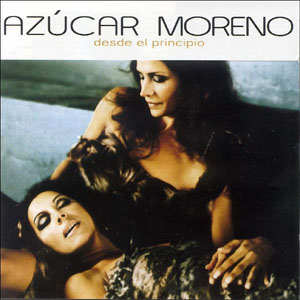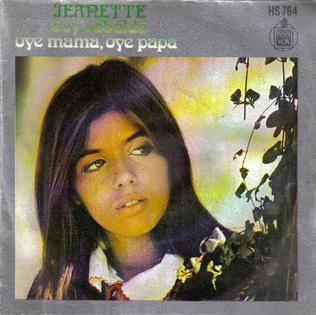Related Research Articles

Flamenco is an art form based on the various folkloric music traditions of southern Spain, developed within the gitano subculture of the region of Andalusia, and also having historical presence in Extremadura and Murcia. In a wider sense, the term is used to refer to a variety of both contemporary and traditional musical styles typical of southern Spain. Flamenco is closely associated to the gitanos of the Romani ethnicity who have contributed significantly to its origination and professionalization. However, its style is uniquely Andalusian and flamenco artists have historically included Spaniards of both gitano and non-gitano heritage.

María Antonia Abad FernándezMML, known professionally as Sara Montiel, also Sarita Montiel, was a Spanish-Mexican actress and singer. She began her career in the 1940s and became the most internationally popular and highest paid star of Spanish cinema in the 1960s. She appeared in nearly fifty films and recorded around 500 songs in five different languages.

Vicente Amigo Girol is a Spanish flamenco composer and guitarist, born in Guadalcanal near Seville. He has played as an accompanying guitarist on recordings by flamenco singers Camarón de la Isla, and Luis de Córdoba, and he has acted as a producer for Remedios Amaya and José Mercé. His album Ciudad de las Ideas won the 2001 Latin Grammy for the Best Flamenco Album and the 2002 Ondas award for the best Flamenco work.
Rodven Records was a Venezuelan record label that belonged to the Cisneros family owned ODC Group, then proprietors of one of the largest TV networks in the country, Venevision. They also owned a nationwide AM radio network and a record stores chain (DiscoCenter), thus serving as a channel for those artists who belonged to the roster of either of those companies.

María del Rocío Mohedano Jurado, better known as Rocío Jurado, was a Spanish singer and actress. She was born in Chipiona (Cádiz) and nicknamed "La más grande".

Osvaldo Nicolás Ferraro Gutiérrez better known as Waldo de los Ríos was an Argentine composer, conductor and arranger.

Capitol Latin is a brand of Universal Music Latin Entertainment, a division of Universal Music Group. Previously, it was a subsidiary of EMI.
Polo is the name of a flamenco palo or musical form. There is only one known song in this palo, which is extremely similar to another palo called caña, and its guitar accompaniment, like the caña, shares its rhythm and motifs with soleá. Both the caña and polo share the same musical mode. The polo has usually been considered as a derivation of the caña. To complete the singing of the polo, singers usually sing a stanza in the palo of soleá, generally in the style called soleá apolá.
Cantes de ida y vuelta is a Spanish expression literally meaning roundtrip songs. It refers to a group of flamenco musical forms or palos with diverse musical features, which "travelled back" from Latin America as styles that, having originated in the interplay between musical traditions of peninsular Spain and those of Latin America, developed into renewed forms that were reintroduced in Spain. Usually they have a more mellow character than the more traditional flamenco songs.

José Tejada Marín, known as Pepe Marchena and also as Niño de Marchena in the first years of his career, was a Spanish flamenco singer who achieved great success in the ópera flamenca period (1922–1956). Influenced by singers like Antonio Chacón, he carried to the extreme the tendency to a more mellow and ornamented style of flamenco singing. Owing to his particular vocal conditions and singing style, he excelled mainly in palos (styles) like fandangos, cantes de ida y vuelta and cantes libres, contributing to making them the most popular flamenco styles in the era of the ópera flamenca, and created a new cante de ida y vuelta, the colombiana, later recorded by many other artists like El Lebrijano or Enrique Morente. He was also the first flamenco singer to use an orchestra to accompany flamenco singing, though later he returned to the guitar.
Francisco Kraus Trujillo was a Spanish baritone.

Miguel Rafael Martos Sánchez, often simply referred to as Raphael, is a Spanish singer and actor. Raphael is recognized as one of the most successful Spanish singers worldwide, having sold more than 70 million records in 7 languages. Currently, he is considered one of the most active singers of the so-called "divos of the romantic ballad", touring throughout America and Europe, transmitting for 60 years of artistic career, a repertoire full of novelty, for which his oldest songs are being recorded again, thus remastering with modern sounds closer to today's youth.

José María Sanz Beltrán, Loquillo or Loco is a Spanish rock singer. He was born in Barcelona. Beginning in the 1980s, he performed as Teddy Loquillo, and then with the groups Loquillo y los Intocables, and later Loquillo y Los Trogloditas. He started out as a rockabilly artist, and then became more famous mixing pop, punk and rock. He played as a solo act as well as performing with the Trogloditas, but they broke up in 2008. Nowadays, he's a widely recognised solo artist in Spain. He also writes blogs on elmundo.es.

Desde El Principio is the twelfth studio album by Spanish duo Azúcar Moreno, released on Sony International in 2004.

"Soy rebelde" is a Spanish pop ballad written by Manuel Alejandro and Ana Magdalena. It was released by British-born singer Jeanette in 1971, and was her debut solo single. It has been re-recorded by Jeanette in English, French, and Japanese, and has inspired cover versions in diverse genres from flamenco to punk rock and rap.
Pilar López Júlvez was a Spanish choreographer and ballerina (bailaora). Encarnación López Júlvez (1898-1945), known as La Argentinita, was her older sister.
El Chocolate was a Flamenco singer from Seville. He was one of the stars of Carlos Saura's film Flamenco.
Los Pekenikes were a primarily instrumental Spanish pop group of the 1960s signed to Hispavox. In 1967 Spain's national radio station selected the group to represent Spain in the Juan-Antoine de Triomphe Variete Festival promoted by French radio stations.

The Violet Seller, better known under its Spanish title La Violetera, is a 1958 Spanish–Italian historical jukebox musical film produced by Benito Perojo, directed by Luis César Amadori and starring Sara Montiel, Raf Vallone, Frank Villard, Tomás Blanco and Ana Mariscal.
This article includes an overview of the major events and trends in Latin music in the 1980s, namely in Ibero-America. This includes recordings, festivals, award ceremonies, births and deaths of Latin music artists, and the rise and fall of various subgenres in Latin music from 1980 to 1989.
References
- ↑ "Disc multinational Emi Music buys Spanish Hispavox". El País (in Spanish). 16 May 1985. Retrieved May 22, 2020.
- ↑ "Hispavox S.A." Discogs . Retrieved May 22, 2020.
- ↑ "Trabuchelli, creador de sonidos en aquellos años 60". www.elcorreogallego.es (in European Spanish). Retrieved 2021-01-04.
- ↑ Callis, Ernest (1985-05-15). "La multinacional del disco Emi Music compra la española Hispavox". El País (in Spanish). ISSN 1134-6582 . Retrieved 2021-01-04.
- ↑ "Golden Disk Montiel". Variety . 15 July 1959. p. 19. Retrieved January 17, 2021.
- ↑ "Muere el productor musical Rafael Trabuchelli". abc (in Spanish). 2006-10-01. Retrieved 2021-01-04.